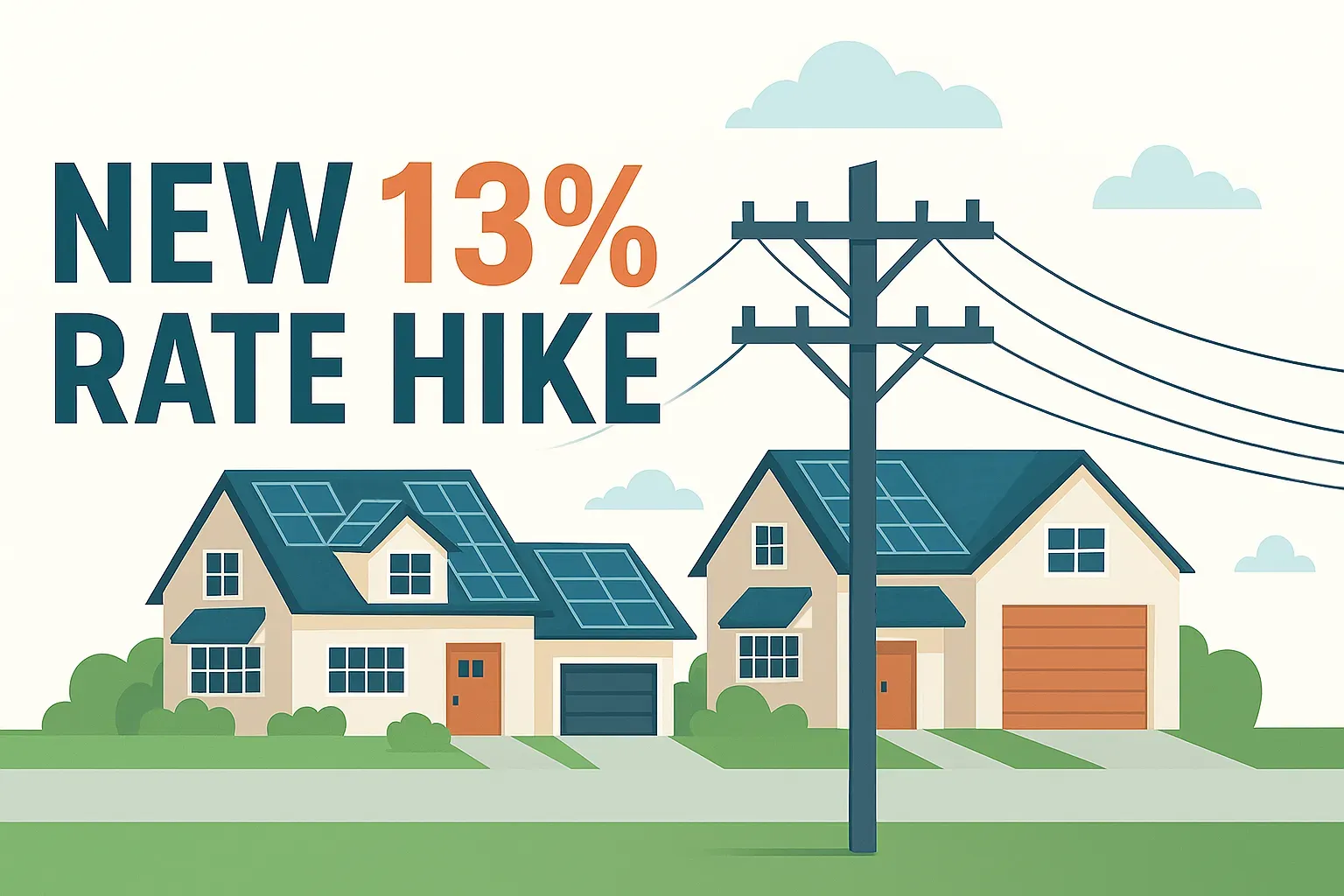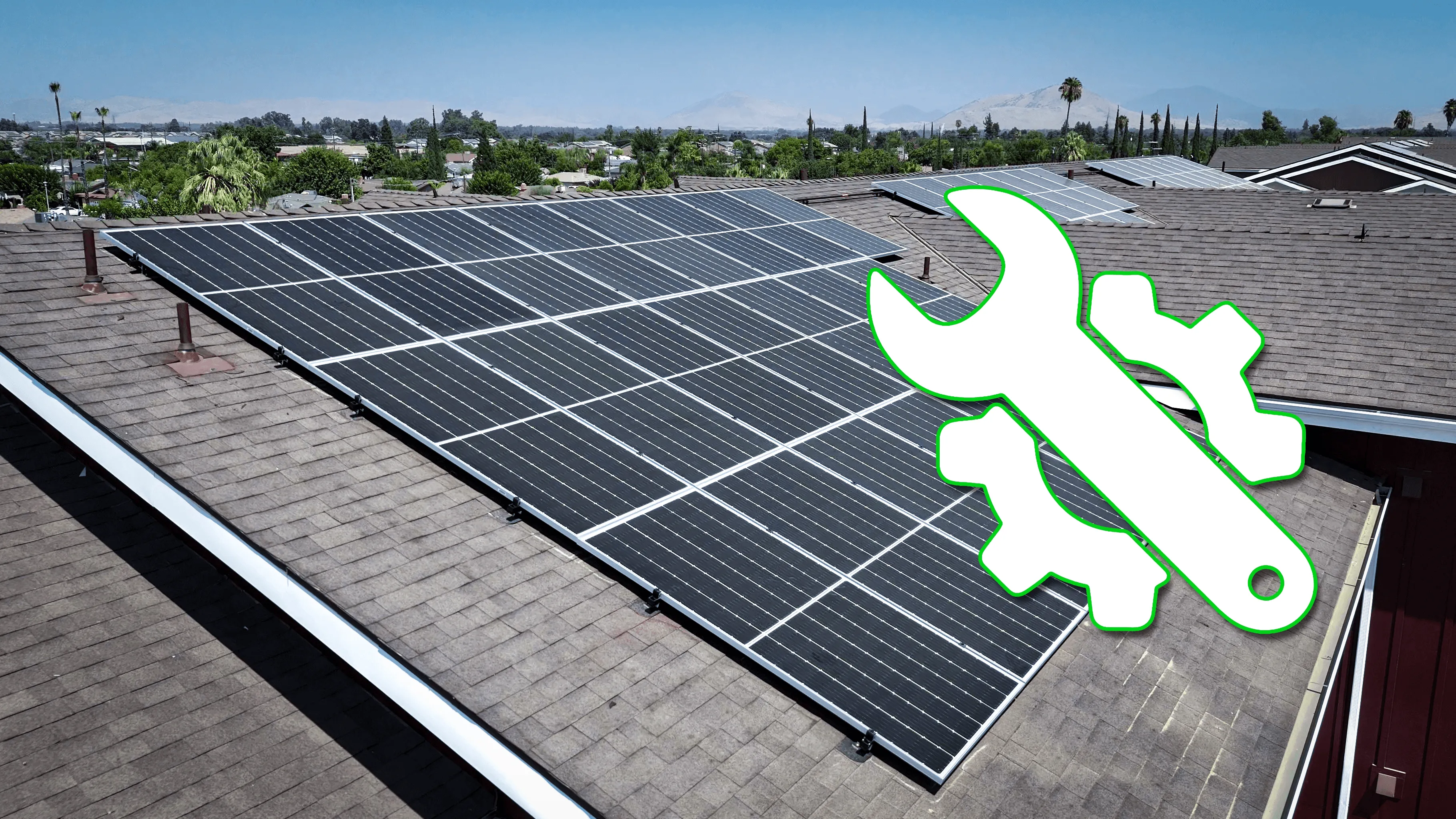Published On:
August 23, 2024
The benefits of residential solar energy are becoming increasingly attractive to homeowners across the United States.
This growing interest is driven by growing environmental concerns, the desire for energy independence, and the potential for significant cost savings.
But are the benefits of residential solar energy truly worth the initial investment, and what can you expect in the long run?
Ready to harness the sun’s power and reduce your energy bills? Contact Option One Solar today to find out how solar energy can be tailored to fit your needs.
The Economic Impact: Unveiling the Financial Benefits of Residential Solar Energy
While the upfront costs associated with solar panel installation can seem intimidating, a closer look at the long-term financial benefits paints a much brighter picture. With financial incentives, such as the federal tax credit, going solar has never been more affordable.
Lower Electricity Bills and Long-Term Savings
One of the benefits of residential solar energy is the reduction in monthly utility bills. A solar energy system for your home can reduce your reliance on the grid, ultimately helping you save on electricity costs.
With a system designed to meet your energy needs, you can significantly decrease or even eliminate your dependence on traditional electricity providers. This leads to substantial savings over time.
Considering the consistently rising Consumer Price Index and its impact on electricity rates, switching to solar offers a shield against volatile energy markets.
Generating electricity through solar panels provides a sense of security and predictability regarding your monthly expenses.
Increase Your Home Value with Solar Panels
Another compelling financial incentive is the impact of solar panels on your home’s value. Studies show that homeowners pay a premium for a solar home.
In fact, one study by Lawrence Berkeley National Laboratory found that solar panel systems increased the value of homes by about $15,000, on average.
That's because prospective home buyers recognize solar energy systems as desirable upgrades comparable to a new kitchen or landscaping.
As more people become environmentally conscious, having solar panels is a strong selling point that can give you an edge in the real estate market.
Benefit Impact Lower Electricity Bills Significant savings on monthly bills Increased Home Value Attracts buyers & commands higher prices Return on Investment Savings and potential earnings over time
Maximizing Return on Your Solar Panel Investment
Although solar panels represent an initial investment, they offer a compelling return over their lifespan. The average payback period in the US for a residential solar panel system is six to twelve years.
However, this can vary depending on factors such as energy costs, usage, and local incentives.
By generating your own clean electricity, you not only save on electricity bills but can potentially even earn money by selling excess energy back to the grid.
With an average lifespan of 25 years for solar panel systems, you can reap the financial and environmental benefits of solar energy for years to come.
Beyond the Dollars and Cents: Exploring the Environmental and Social Benefits of Residential Solar Energy
The benefits of residential solar energy extend far beyond immediate financial gains. Residential solar energy is a smart choice for environmentally conscious homeowners and those seeking greater energy independence.
Contribute to a Greener Future
One of the most significant benefits of residential solar energy is its positive impact on the environment.
According to a report by the Office of Energy Efficiency & Renewable Energy, solar panels pay for themselves in terms of greenhouse gas emissions within one to four years of use.
As a clean and renewable energy source, solar reduces our reliance on fossil fuels. Fossil fuels are finite resources and major contributors to greenhouse gas emissions.
Utilizing solar energy helps mitigate climate change, improves air quality, and reduces water consumption. Ultimately, this contributes to a healthier planet for everyone.
Become Energy Independent with Residential Solar
Switching to solar panels is a powerful step towards achieving energy independence.
With the right solar energy system size and energy storage solutions, such as battery storage, you'll become less reliant on traditional utility companies.
This independence is increasingly valuable during power outages, grid failures, or even natural disasters. Solar energy can provide a reliable backup power source for your home.
Weighing the Pros and Cons: Addressing Common Concerns About Benefits of Residential Solar Energy
As with any major home improvement project, understanding the potential drawbacks of switching to solar power is just as important as celebrating the benefits.
Upfront Cost of Solar Panel Systems
Undoubtedly, one of the most significant considerations is the upfront investment. Costs can fluctuate significantly based on system size, panel quality, installation complexities, and regional variations in labor costs.
However, with numerous financing options, such as solar loans and leasing programs readily available, homeowners now have greater flexibility.
With Option One Solar, you can choose a plan that suits your budget and makes the transition to solar energy more manageable.
Addressing Solar Energy's Impact on Aesthetics
While not a concern for everyone, some individuals express concern over how solar panels might affect their home's appearance.
While earlier iterations of solar panels were somewhat bulky and visually unappealing, today's designs have evolved dramatically.
Many homeowners find that the sleek, low-profile panels enhance rather than detract from their homes' overall aesthetics.
Furthermore, newer “solar shingles” integrate seamlessly into existing roofs, providing a visually discreet solution for the aesthetically minded homeowner.
Ultimately, whether you choose traditional panels or a more integrated design, aesthetics are becoming less of a concern with time.
Beyond aesthetics, it's important to consider the placement and orientation of your solar panels. South-facing roofs generally offer the best sun exposure, maximizing energy production.
FAQs about the Benefits of Residential Solar Energy
What are the benefits of residential solar panels?
Residential solar panels provide numerous benefits, including:
Reduced electricity bills.
Increased home value.
A lower carbon footprint.
Energy independence.
Potential tax incentives.
They can also contribute to a cleaner environment, lower reliance on fossil fuels, and a reduced risk of rising energy costs.
What are 5 advantages of solar energy?
Five significant advantages of solar energy are:
Cost savings through reduced or eliminated electric bills.
Environmentally friendly energy production that cuts greenhouse gas emissions.
Increased home value that can attract potential buyers.
A reliable source of energy independent of traditional power grids.
A renewable energy source not dependent on finite fossil fuels.
Is solar energy good for a house?
Absolutely, solar energy is beneficial for a house.
Not only does it add value to your home and reduce reliance on traditional electricity, but solar energy also lessens your environmental impact, contributes to energy independence, and often qualifies you for valuable tax incentives and rebates.
Does home solar really save money?
Yes, home solar can indeed save you a significant amount of money in the long run.
While the initial investment might seem substantial, lower or completely eliminated electricity bills and the potential for earning credits by selling excess energy to the grid results in substantial savings over the system's lifespan.
The Smart Choice for a Sustainable and Independent Future
The benefits of residential solar energy are increasingly difficult to ignore, leading the way to a new era of sustainable living.
They represent not only a smart financial decision, offering lower energy costs and increased home values, but also embody a commitment to a healthier planet and a more energy-independent future.
With continued technological advancements and a deeper understanding of its advantages, solar energy is rapidly transforming from an alternative to a mainstream solution for powering homes nationwide.
Transform your energy solution with Option One Solar. Contact Option One Solar Today to start your journey to sustainability now by scheduling your free consultation. Your future of cleaner, more affordable energy awaits.



